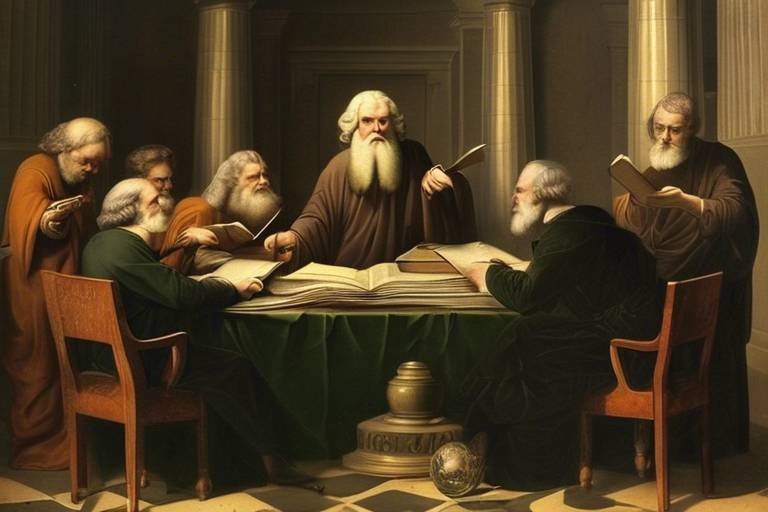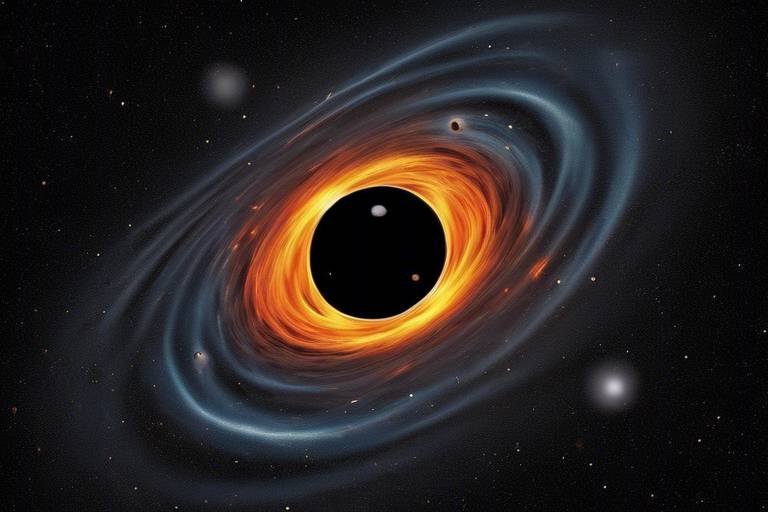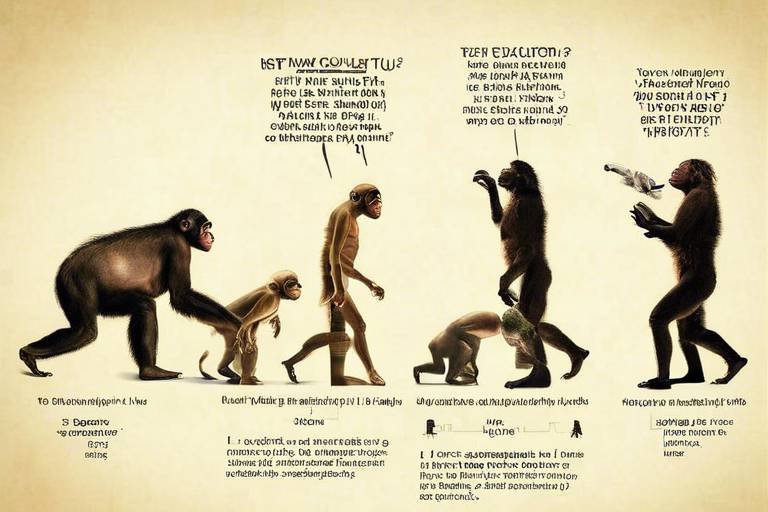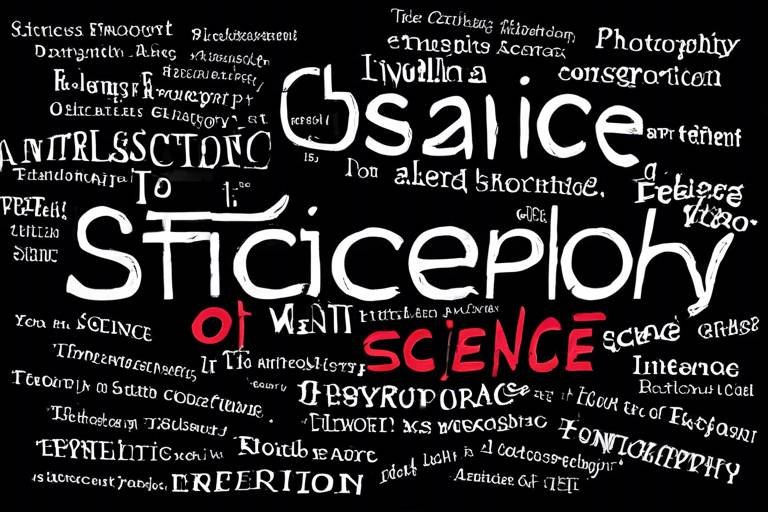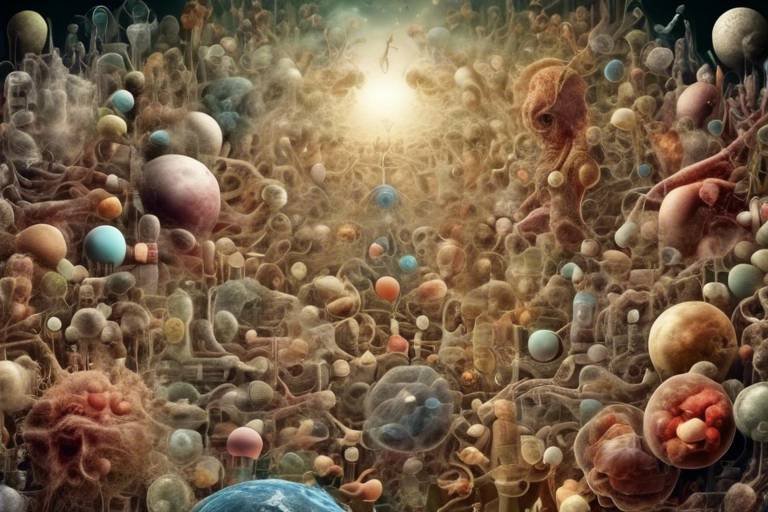The Origins of Philosophy and Science - A Look Back
This article explores the historical roots of philosophy and science, examining their interconnections and evolution from ancient civilizations to modern thought, highlighting key figures and ideas that shaped our understanding of the world.
Ancient civilizations laid the groundwork for philosophical inquiry, with thinkers like Socrates and Confucius challenging conventional wisdom and exploring fundamental questions about existence, ethics, and knowledge that still resonate today. These early philosophers were not just pondering abstract ideas; they were deeply engaged with the world around them, seeking to understand the principles that govern human behavior and the universe. Their inquiries prompted people to think critically and question the status quo, paving the way for a richer understanding of life.
The transition from philosophical speculation to empirical investigation marked the birth of science. Pioneers like Galileo and Newton introduced methods that emphasized observation and experimentation, fundamentally altering humanity's approach to understanding the natural world. This shift was akin to moving from a foggy landscape to a clear view; it allowed people to see the intricate details of the universe and understand the laws that govern it. The scientific method became a beacon of light, guiding thinkers in their quest for knowledge.
Greek philosophers, including Plato and Aristotle, significantly influenced scientific thought by introducing systematic reasoning and categorization, which provided a framework for later scientific exploration and inquiry into the nature of reality. Plato's ideas about ideal forms encouraged thinkers to look beyond the physical world, while Aristotle's focus on empirical observation laid the groundwork for the scientific method. Together, they created a rich tapestry of thought that intertwined philosophy and science, shaping the intellectual landscape for centuries to come.
Plato's theory of Ideal Forms posited that non-material abstract forms represent the most accurate reality, influencing subsequent philosophical and scientific discussions about the nature of existence and the pursuit of knowledge. Imagine a world where the essence of things exists in perfect form, separate from the imperfect manifestations we see around us. This notion has sparked countless debates and inspired many to seek deeper truths beyond mere appearances.
Aristotle's emphasis on observation and classification laid the foundations for the scientific method, advocating for empirical investigation and logical reasoning that are central to modern scientific practices. He was the original detective of the natural world, meticulously observing and categorizing everything from plants to animals. His work encouraged future generations to adopt a systematic approach to inquiry, moving science from the realm of speculation into a discipline rooted in evidence.
Medieval scholars preserved and expanded upon Greek and Roman knowledge, integrating religious perspectives with philosophical inquiry, which played a crucial role in the development of both philosophy and science during this period. These scholars were like bridges connecting the ancient world to the future, ensuring that valuable knowledge was not lost. Their work laid the groundwork for the Renaissance, where the thirst for knowledge would flourish once more.
The Renaissance marked a significant turning point, as renewed interest in classical texts and humanism led to advancements in both philosophy and science, fostering a spirit of inquiry that challenged established norms and traditions. It was a time when the floodgates of knowledge opened wide, allowing new ideas to pour in and reshape the intellectual landscape. This period was akin to a vibrant garden, where various thoughts bloomed and coexisted, enriching human understanding.
Humanism emphasized the value of human experience and rationality, encouraging thinkers to explore the natural world and human nature, thus bridging the gap between philosophical thought and scientific exploration. It was a movement that celebrated the individual, urging people to look at the world through a lens of inquiry and creativity. This shift in perspective was revolutionary, fostering a culture of questioning and discovery that would lead to remarkable advancements in both fields.
The Scientific Revolution introduced groundbreaking ideas and methodologies, with key figures like Copernicus and Kepler reshaping our understanding of the cosmos and laying the groundwork for modern science through rigorous observation and mathematical reasoning. This era was a thrilling ride through the cosmos, as thinkers began to see the universe not just as a series of mysteries but as a vast, interconnected system governed by laws that could be understood and predicted.
Philosophy and science, while distinct, share a symbiotic relationship, as philosophical inquiry often informs scientific exploration, and scientific discoveries can challenge and refine philosophical concepts, leading to a deeper understanding of reality. This dynamic interplay is like a dance, with each discipline influencing and elevating the other. As we delve deeper into the mysteries of the universe, we find that the questions posed by philosophy often guide scientific inquiry, while scientific findings can reshape our philosophical views.
- What is the difference between philosophy and science? Philosophy deals with abstract concepts and fundamental questions about existence, while science focuses on empirical investigation and the natural world.
- Who were the key figures in the development of philosophy? Notable figures include Socrates, Plato, Aristotle, and Confucius, who laid the groundwork for philosophical inquiry.
- How did the Scientific Revolution impact society? The Scientific Revolution challenged established beliefs, leading to advancements in technology, medicine, and a greater understanding of the natural world.
- What role did medieval scholars play in philosophy and science? Medieval scholars preserved ancient texts and integrated them with religious thought, ensuring the continuity of knowledge during a time of cultural transformation.

An Overview of Ancient Philosophical Thought
Ancient civilizations laid the groundwork for philosophical inquiry, setting the stage for the profound questions that continue to shape our understanding of existence today. Thinkers like Socrates and Confucius emerged from different corners of the world, yet their ideas resonate with remarkable similarity. They challenged conventional wisdom, urging individuals to question the status quo and explore fundamental issues related to ethics, knowledge, and the essence of being. Imagine a world where every thought was scrutinized, where every belief was put to the test—this was the intellectual landscape of ancient philosophy.
In ancient Greece, Socrates famously proclaimed, “The unexamined life is not worth living,” igniting a spark of inquiry that would light the path for countless philosophers to follow. His method of dialectical questioning, known as the Socratic method, encouraged deep reflection and dialogue, allowing individuals to arrive at their own conclusions rather than accept ideas blindly. This approach not only fostered critical thinking but also laid the foundation for ethical philosophy, where questions about virtue, justice, and the good life became central themes.
Meanwhile, in the East, Confucius emphasized the importance of moral integrity, social harmony, and respect for tradition. His teachings focused on the cultivation of personal virtue and the role of the individual within society. This philosophy was not just about personal enlightenment; it was about creating a cohesive community based on shared values and ethical behavior. The parallel between Socratic questioning and Confucian moralism reveals a universal quest for understanding that transcends cultural boundaries.
As we delve deeper into ancient philosophical thought, we encounter a rich tapestry of ideas that shaped the intellectual landscape of the time. Consider the following key figures and their contributions:
| Philosopher | Key Ideas | Impact |
|---|---|---|
| Socrates | Socratic Method, Ethics | Foundation of Western philosophy |
| Plato | Theory of Forms, Idealism | Influenced metaphysics and epistemology |
| Aristotle | Empiricism, Logic | Established the basis for scientific inquiry |
| Confucius | Moral philosophy, Social harmony | Influenced Eastern thought and governance |
These thinkers didn’t just ponder abstract concepts; they sought to understand the very fabric of reality and our place within it. Their discussions about the nature of knowledge and existence paved the way for subsequent philosophical and scientific exploration. The interplay between these ancient philosophies not only enriched their respective cultures but also laid the groundwork for future generations to grapple with the same enduring questions.
In conclusion, ancient philosophical thought was not merely an academic exercise; it was a vibrant dialogue that sought to illuminate the complexities of human existence. The legacies of Socrates, Confucius, and their contemporaries remind us that the quest for knowledge is a timeless journey—one that invites us to think critically, act ethically, and engage deeply with the world around us.

The Birth of Scientific Inquiry
The transition from philosophical speculation to empirical investigation marked a pivotal moment in human history—the birth of scientific inquiry. This transformation was not merely a shift in methodology; it represented a fundamental change in how we perceived the universe and our place within it. Thinkers like Galileo Galilei and Isaac Newton emerged as pioneers, advocating for a new approach that emphasized observation and experimentation over mere conjecture. Imagine standing on the precipice of a vast ocean of knowledge, where every wave of discovery reshapes the shoreline of human understanding.
In this new era, the scientific method became the cornerstone of inquiry. It was a revolutionary framework that encouraged individuals to ask questions, formulate hypotheses, conduct experiments, and draw conclusions based on evidence. This method was not just a tool; it was a philosophical shift that encouraged skepticism and curiosity. The hallmark of this period was the rejection of blind faith in established doctrines, replaced instead by a rigorous examination of nature. Scientists began to view the world as a vast laboratory, ripe for exploration and discovery.
One of the most striking features of this new scientific paradigm was the collaboration between different fields of study. Mathematics, for instance, became an essential tool for scientists. Newton's laws of motion were not merely observations; they were expressed in mathematical terms, allowing for precise predictions about the physical world. This blending of disciplines illustrated how interconnected knowledge could lead to profound insights. To visualize this interplay, consider the following table that outlines some key figures and their contributions during this transformative period:
| Scientist | Contribution |
|---|---|
| Galileo Galilei | Developed the telescope, made astronomical observations, and supported heliocentrism. |
| Isaac Newton | Formulated the laws of motion and universal gravitation; laid the groundwork for classical mechanics. |
| Johannes Kepler | Described planetary motion through elliptical orbits, enhancing our understanding of the solar system. |
| Francis Bacon | Promoted the empirical method and inductive reasoning, influencing the scientific method. |
As the scientific inquiry blossomed, it became increasingly evident that the pursuit of knowledge was not a solitary endeavor. Collaboration among scientists and thinkers was crucial. They shared ideas, challenged each other's findings, and built upon one another's work. This communal aspect of inquiry fostered a vibrant intellectual environment that propelled humanity forward. It was a time when ideas could explode into new realms of understanding, much like fireworks lighting up the night sky.
In summary, the birth of scientific inquiry marked a transformative era in human thought. It shifted our perspective from passive acceptance of knowledge to an active quest for understanding. This shift not only paved the way for groundbreaking discoveries but also fundamentally altered our relationship with the natural world. The legacy of this period is evident in how we approach problems today, with a reliance on evidence and a commitment to questioning the status quo. As we delve deeper into the interconnections between philosophy and science, it becomes clear that this foundation laid by early scientists continues to inspire and guide our exploration of reality.
- What is the scientific method?
The scientific method is a systematic approach to inquiry that involves making observations, forming a hypothesis, conducting experiments, and drawing conclusions based on evidence. - Who were the key figures in the birth of scientific inquiry?
Key figures include Galileo Galilei, Isaac Newton, Johannes Kepler, and Francis Bacon, each contributing significantly to the development of scientific thought. - How did the scientific revolution change philosophy?
The scientific revolution shifted philosophical inquiry from speculation to empirical investigation, emphasizing observation and evidence over dogma.

The Influence of Greek Philosophy
Greek philosophy has had a profound impact on the development of scientific thought, serving as the bedrock upon which many modern ideas are built. Think about it: without the rigorous questioning and exploration of existence initiated by Greek philosophers, would we have the scientific methods we rely on today? Figures like Plato and Aristotle not only pondered the nature of reality but also laid the groundwork for systematic reasoning and empirical investigation, which are crucial to science.
Plato's contributions, particularly through his theory of Ideal Forms, emphasized that the tangible world is merely a shadow of a higher reality. He believed that these abstract forms represented the most accurate truth, influencing countless discussions about knowledge and existence. This perspective encouraged later thinkers to seek deeper truths beyond mere observation, fostering a spirit of inquiry that is essential in both philosophy and science.
On the other hand, Aristotle championed a different approach. His emphasis on empirical methods and observation was revolutionary. While Plato looked to the abstract, Aristotle grounded his investigations in the physical world, advocating for a systematic classification of knowledge. He famously stated, “All men by nature desire to know,” which reflects the innate curiosity that drives both philosophical and scientific exploration. Aristotle's methodologies laid the foundation for what would eventually evolve into the modern scientific method, where observation, experimentation, and logical reasoning are paramount.
In essence, Greek philosophy provided the tools for critical thinking and analysis that are indispensable in scientific inquiry. The dialectical method, which involves dialogue and debate to explore ideas, was a hallmark of Greek philosophical practice and remains a vital part of scientific discourse today. The influence of these early thinkers is seen not only in the way we conduct experiments but also in how we frame questions about the universe. Their legacy is a testament to the enduring power of philosophical thought in shaping our understanding of science.
As we delve deeper into the realms of philosophy and science, it becomes clear that the interplay between these disciplines is not just historical but also profoundly relevant to our contemporary quest for knowledge. The philosophical inquiries initiated by the Greeks continue to resonate, encouraging us to ask fundamental questions about our existence and the nature of the universe.
- What is the main contribution of Greek philosophy to science? Greek philosophy introduced systematic reasoning and empirical investigation, which are foundational to the scientific method.
- How did Plato and Aristotle differ in their approaches? Plato focused on abstract Ideal Forms, while Aristotle emphasized observation and empirical methods.
- Why is the dialectical method important? The dialectical method promotes critical thinking and debate, essential for scientific inquiry and philosophical discourse.

Plato's Ideal Forms
Plato's theory of Ideal Forms, also known as the Theory of Ideas, is a fascinating concept that has sparked debate and discussion for centuries. Imagine a world where everything you see is merely a shadow of a greater reality—this is the essence of Plato's thought. According to him, the tangible world we experience through our senses is just a reflection of a higher realm of perfect, abstract forms. These Ideal Forms represent the true essence of things, existing beyond the physical realm. For instance, when we think about the concept of a 'tree,' we might picture various trees in our mind, but Plato would argue that the true 'Tree' exists as an Ideal Form, embodying all the perfect qualities of a tree that we can never fully grasp in our imperfect world.
To better understand this theory, let’s break down some key aspects:
- Non-material Existence: Plato believed that these Ideal Forms are not physical objects; rather, they exist in a non-material realm that is more real than the objects we encounter daily.
- Perfection: Each Ideal Form is perfect and unchanging, unlike the physical objects that are subject to decay and imperfection. This notion invites us to question the very nature of reality and our understanding of it.
- Knowledge and Learning: Plato suggested that true knowledge comes from understanding these Ideal Forms rather than relying solely on sensory experience. He posited that learning is essentially a process of recollection, where we remember the Ideal Forms we have encountered before our physical existence.
One of the most compelling illustrations of Plato's Ideal Forms is his famous Allegory of the Cave. In this allegory, prisoners are chained inside a dark cave, only able to see shadows cast on the wall by objects behind them, illuminated by a fire. These shadows represent the physical world, while the objects casting the shadows symbolize the Ideal Forms. When a prisoner escapes and discovers the outside world, he realizes that the shadows were merely illusions, and he begins to comprehend the true reality of the Ideal Forms. This powerful metaphor emphasizes the importance of philosophical inquiry in seeking knowledge beyond mere appearances.
In essence, Plato's Ideal Forms challenge us to think critically about our perceptions and the nature of reality. They encourage a deeper exploration of existence, pushing us to seek out the underlying truths that govern our world. By engaging with this theory, we can appreciate the profound impact it has had on both philosophical and scientific discussions throughout history, guiding thinkers in their quest for understanding and knowledge.
- What are Plato's Ideal Forms? Plato's Ideal Forms are non-material, abstract concepts that represent the true essence of things, existing beyond the physical world.
- How do Ideal Forms relate to the physical world? Ideal Forms are seen as perfect and unchanging, while physical objects are imperfect representations or shadows of these forms.
- What is the significance of the Allegory of the Cave? The Allegory of the Cave illustrates the difference between the world of appearances and the world of reality, emphasizing the importance of philosophical inquiry in understanding the true nature of existence.
- How did Plato influence modern thought? Plato's ideas about Ideal Forms have significantly influenced both philosophy and science, encouraging critical thinking and exploration of deeper truths.

Aristotle's Empirical Methods
Aristotle, often hailed as the father of empiricism, revolutionized the way we approach knowledge and understanding. Unlike his predecessors who relied heavily on abstract reasoning, Aristotle emphasized the importance of observation and experience as the foundations of knowledge. He believed that to truly understand the world, one must engage with it directly. This shift from purely theoretical speculation to a more hands-on approach laid the groundwork for what we now recognize as the scientific method.
In his quest for knowledge, Aristotle categorized various fields of study, including biology, physics, and ethics, which allowed for a systematic exploration of each discipline. His methodologies were not merely about collecting data; they involved careful classification and analysis of information gathered through observation. For instance, in his studies of animals, Aristotle meticulously recorded their behaviors, habitats, and physical characteristics, creating a comprehensive framework that would influence future scientific inquiry.
Aristotle's empirical methods can be summarized in the following key principles:
- Observation: Directly observing phenomena to gather data.
- Classification: Organizing knowledge into categories for better understanding.
- Induction: Drawing general conclusions from specific observations.
- Logical Reasoning: Applying deductive reasoning to test hypotheses.
This approach not only fostered a deeper understanding of the natural world but also encouraged a spirit of inquiry that persisted through the ages. Aristotle's influence can still be seen in modern scientific practices, where the importance of empirical evidence and systematic investigation remains paramount. His works, preserved and studied through the centuries, continue to inspire scientists and philosophers alike, reminding us that the pursuit of knowledge is a journey best undertaken with both curiosity and methodology.
In essence, Aristotle taught us that knowledge is not merely a collection of facts but a dynamic interplay between observation, reasoning, and the natural world. His legacy is a testament to the power of empirical methods, showing us that the answers we seek often lie just beyond our immediate perception, waiting to be discovered through careful inquiry.

The Role of Medieval Scholars
During the Medieval period, often referred to as the Middle Ages, scholars played a crucial role in preserving and expanding the rich tapestry of knowledge inherited from the ancient Greeks and Romans. These thinkers, often working within the confines of religious institutions, sought to integrate faith and reason, establishing a unique blend of philosophy and science that would influence the course of Western thought. The medieval scholars were not just mere custodians of knowledge; they were innovators who sought to reconcile ancient wisdom with contemporary issues, thus laying the groundwork for the intellectual revival that followed in the Renaissance.
One of the most significant contributions of medieval scholars was their commitment to translating and commentating on classical texts. They took works from ancient philosophers like Aristotle and Plato and translated them from Greek and Latin into Arabic and later back into Latin, making them accessible to a wider audience. This process not only preserved these texts but also sparked new interpretations and debates that enriched philosophical discourse. Notable figures such as Thomas Aquinas emerged during this time, who sought to synthesize Aristotelian philosophy with Christian theology, arguing that faith and reason could coexist harmoniously.
Medieval scholars also made significant strides in various fields, including mathematics, astronomy, and medicine. They established universities, which became centers of learning and inquiry, where students could engage in rigorous debate and study. The curriculum often included the seven liberal arts, divided into the trivium (grammar, rhetoric, logic) and the quadrivium (arithmetic, geometry, music, astronomy). This educational framework set the stage for future scientific exploration and philosophical inquiry.
Moreover, the medieval period was characterized by the rise of scholasticism, a method of learning that emphasized dialectical reasoning. This approach encouraged scholars to question established doctrines and engage in critical analysis, leading to a more profound understanding of both philosophical and scientific concepts. The debates held in the great universities of Paris, Oxford, and Bologna were pivotal in shaping the intellectual landscape of Europe.
In summary, the role of medieval scholars was multifaceted and immensely impactful. They not only preserved ancient knowledge but also expanded upon it, integrating it with contemporary thought and laying the groundwork for the intellectual revolutions that would follow. Their work exemplifies the enduring relationship between philosophy and science, showcasing how inquiry and exploration can thrive even in the most challenging of times.
- What was the primary role of medieval scholars?
Medieval scholars were responsible for preserving, translating, and expanding upon ancient texts, integrating classical knowledge with contemporary thought, and establishing the foundations for modern education.
- How did scholasticism influence medieval thought?
Scholasticism emphasized dialectical reasoning and critical analysis, encouraging scholars to question established doctrines and engage in rigorous debate, which enriched both philosophy and science.
- What were the seven liberal arts?
The seven liberal arts were divided into the trivium (grammar, rhetoric, logic) and the quadrivium (arithmetic, geometry, music, astronomy), forming the basis of medieval education.

The Renaissance: A Rebirth of Knowledge
The Renaissance, often referred to as a **rebirth of knowledge**, was a remarkable period in history that spanned roughly from the 14th to the 17th century. It marked a profound transformation in various fields, including art, literature, philosophy, and science. This era was characterized by a renewed interest in the classical texts of ancient Greece and Rome, which inspired a wave of intellectual curiosity that challenged the established norms of the Middle Ages. Thinkers and artists began to explore the world through a lens of humanism, emphasizing the value of human experience and rational thought.
During the Renaissance, individuals sought to understand the world not just through religious doctrine but through observation and reason. This shift was pivotal, as it laid the groundwork for the scientific revolution that followed. The humanist movement, which celebrated the potential of human beings and their capacity for creativity and critical thinking, played a crucial role in this intellectual awakening. Scholars like Erasmus and Petrarch encouraged a return to the original texts of antiquity, promoting a culture of inquiry that was both philosophical and scientific.
As the Renaissance progressed, the intermingling of **philosophy and science** became increasingly evident. The emphasis on empirical observation and the questioning of traditional beliefs led to significant advancements in various scientific fields. Notable figures such as Leonardo da Vinci and Galileo Galilei emerged during this time, bridging the gap between artistic expression and scientific exploration. Da Vinci's meticulous studies of anatomy and his inventions showcased the application of scientific principles to art, while Galileo's astronomical observations challenged the geocentric view of the universe.
To illustrate the impact of the Renaissance on knowledge, we can look at the following key features:
| Key Feature | Description |
|---|---|
| Humanism | A movement that emphasized human potential and achievements, fostering a spirit of inquiry. |
| Scientific Inquiry | The shift towards observation and experimentation as methods for understanding the natural world. |
| Art and Science | The blending of artistic creativity with scientific principles, as seen in the works of da Vinci. |
| Classical Texts | The revival of interest in ancient Greek and Roman literature and philosophy, influencing contemporary thought. |
In summary, the Renaissance was not merely a period of artistic achievement; it was a **transformative era** that reshaped humanity's understanding of the world. The combination of philosophical inquiry and scientific exploration during this time laid the foundation for modern thought and inquiry. As we look back at this vibrant period, we can see how the seeds of curiosity and critical thinking planted during the Renaissance continue to influence our understanding of knowledge today.
- What was the Renaissance? The Renaissance was a cultural, artistic, and intellectual movement that began in Italy in the 14th century and spread throughout Europe, marking a renewed interest in classical antiquity.
- How did humanism influence the Renaissance? Humanism emphasized the value of human experience and rationality, encouraging individuals to explore the natural world and human nature, which bridged the gap between philosophy and science.
- Who were some key figures of the Renaissance? Notable figures include Leonardo da Vinci, Galileo Galilei, Erasmus, and Petrarch, who contributed to advancements in art, science, and philosophy.
- What impact did the Renaissance have on science? The Renaissance led to the development of the scientific method and encouraged empirical observation, which laid the groundwork for the Scientific Revolution.

Humanism and Its Impact
During the Renaissance, a cultural movement known as Humanism emerged, emphasizing the importance of human experience, rationality, and the study of classical texts. This intellectual revival was not just a fleeting trend; it fundamentally reshaped the landscape of both philosophy and science. Humanists believed that individuals have the capacity to understand the world through reason and observation, rather than solely relying on religious doctrine or tradition. This shift was akin to opening a window in a stuffy room, allowing fresh air and new ideas to flow in.
Humanism encouraged scholars and thinkers to delve into various fields, including literature, art, and science, fostering a spirit of inquiry that challenged established norms. It was during this period that figures like Leonardo da Vinci and Michelangelo not only produced magnificent works of art but also explored anatomy and the physical world, merging artistic expression with scientific investigation. Such interdisciplinary approaches laid the groundwork for a more comprehensive understanding of humanity and the universe.
One of the critical impacts of Humanism was its emphasis on the value of individual experience. Thinkers began to question the accepted truths of the past and sought to understand human nature and the natural world through direct observation. This perspective is beautifully summed up by the phrase, "Man is the measure of all things," which encapsulated the belief that human beings are capable of shaping their destinies through reason and inquiry.
Moreover, Humanism played a pivotal role in the development of educational systems. The rise of universities during this time was a direct result of the Humanist movement, which advocated for a curriculum based on the study of classical texts, philosophy, and the sciences. This educational reform not only enriched the minds of scholars but also prepared them to engage with the world critically and creatively. The table below illustrates some key aspects of Humanism and its impact on various fields:
| Field | Impact of Humanism |
|---|---|
| Philosophy | Encouraged critical thinking and questioning of traditional beliefs. |
| Science | Promoted empirical observation and experimentation. |
| Literature | Revived interest in classical texts and human-centered narratives. |
| Art | Blended artistic expression with scientific inquiry, particularly in anatomy. |
In conclusion, the impact of Humanism during the Renaissance was profound, as it not only transformed the way individuals viewed themselves and their capabilities but also paved the way for the modern age of inquiry. By prioritizing human experience and rational thought, Humanism laid the foundation for the scientific method and encouraged a holistic approach to understanding the world. This legacy continues to resonate today, reminding us that the quest for knowledge is an inherently human endeavor.
- What is Humanism? Humanism is a cultural and intellectual movement that emphasizes the value of human experience and rationality, focusing on the study of classical texts and the importance of individual thought.
- How did Humanism influence science? Humanism encouraged empirical observation and critical thinking, leading to advancements in scientific methods and the questioning of traditional beliefs.
- Who were some key figures in the Humanist movement? Notable figures include Erasmus, Petrarch, Leonardo da Vinci, and Michelangelo, who contributed to various fields through their emphasis on human experience and inquiry.

Scientific Revolution and Its Key Figures
The Scientific Revolution was a period of immense transformation that fundamentally altered humanity's understanding of the universe. Spanning from the late 16th century to the 18th century, this era marked a dramatic shift from reliance on ancient texts and religious doctrine to a new emphasis on empirical evidence and observation. Central to this revolution were several key figures whose groundbreaking ideas and methodologies paved the way for modern science.
One of the most pivotal figures was Nicolaus Copernicus, who dared to challenge the long-standing geocentric model of the universe. In his seminal work, De revolutionibus orbium coelestium, published in 1543, Copernicus proposed that the sun, rather than the Earth, was at the center of the universe. This heliocentric view not only reshaped astronomical thought but also ignited a series of debates that would reverberate through the centuries.
Following Copernicus, Galileo Galilei emerged as a key player in the Scientific Revolution. Often referred to as the "father of modern observational astronomy," Galileo utilized the newly invented telescope to make significant discoveries, including the moons of Jupiter and the phases of Venus. His insistence on the importance of experimentation and observation laid the groundwork for the scientific method that we recognize today. Unfortunately, his outspoken support for heliocentrism led to conflict with the Catholic Church, showcasing the tension between science and established authority.
Another monumental figure was Johannes Kepler, whose laws of planetary motion provided a mathematical framework for understanding the orbits of planets. Kepler's work not only supported Copernican theory but also introduced the idea that the universe operated according to predictable laws. His first law, which states that planets move in elliptical orbits with the sun at one focus, was revolutionary and remains a cornerstone of celestial mechanics.
Then there was Isaac Newton, whose contributions were nothing short of extraordinary. His work, Philosophiæ Naturalis Principia Mathematica, published in 1687, unified the laws of motion and gravitation, providing a comprehensive explanation of both terrestrial and celestial phenomena. Newton's mathematical approach to physics and his formulation of the three laws of motion established a new standard for scientific inquiry. His emphasis on mathematics as the language of science opened doors to future generations of scientists.
These key figures were not isolated in their pursuits. They were part of a larger movement that included many other thinkers and innovators. The Scientific Revolution was characterized by collaboration and the sharing of ideas, often facilitated by the establishment of scientific societies and journals. The impact of this period was profound, leading to advancements in various fields such as physics, astronomy, biology, and chemistry.
In summary, the Scientific Revolution was a transformative period that redefined humanity's relationship with the natural world. The contributions of Copernicus, Galileo, Kepler, and Newton, among others, created a framework for scientific inquiry that emphasized observation, experimentation, and mathematical reasoning. This legacy continues to influence our understanding of the universe today, demonstrating how the courage to question conventional wisdom can lead to profound discoveries.
- What was the Scientific Revolution?
The Scientific Revolution was a period of significant advancements in scientific thought and methodology, occurring from the late 16th to the 18th century, characterized by a shift from religious and ancient texts to empirical evidence and observation.
- Who were the key figures of the Scientific Revolution?
Key figures included Nicolaus Copernicus, Galileo Galilei, Johannes Kepler, and Isaac Newton, each contributing groundbreaking ideas that reshaped our understanding of the universe.
- How did the Scientific Revolution impact society?
The Scientific Revolution challenged established norms and beliefs, leading to a greater emphasis on reason and evidence in understanding the natural world, which laid the groundwork for modern science.
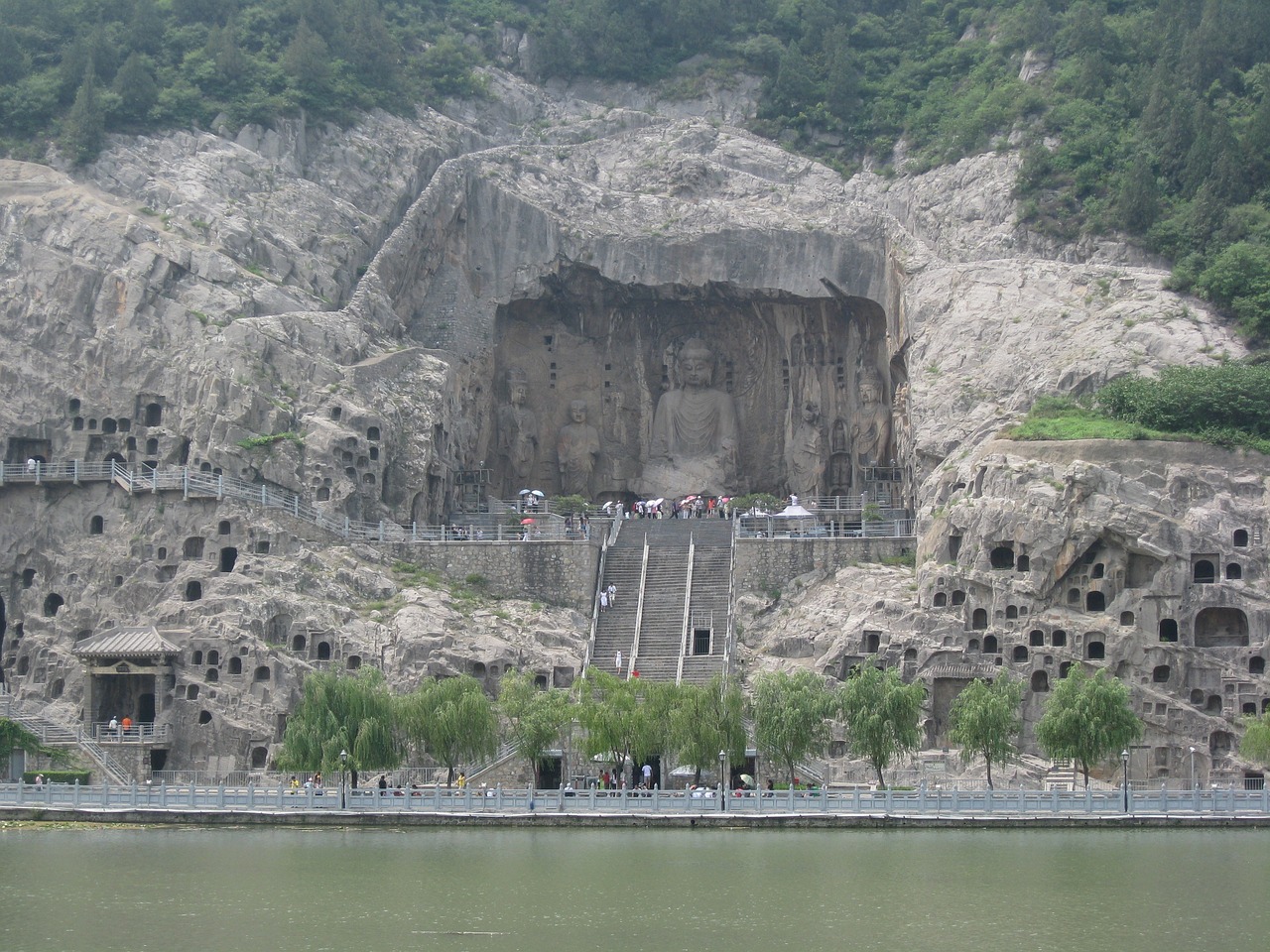
The Interconnection of Philosophy and Science
Philosophy and science, while often seen as distinct realms of inquiry, share a deeply intertwined relationship that has evolved over centuries. At their core, both disciplines seek to answer fundamental questions about existence, reality, and the nature of knowledge. It's fascinating to consider how philosophical questions have historically paved the way for scientific exploration. For instance, the **epistemological** inquiries of philosophers like Descartes and Kant prompted scientists to think critically about the sources and limits of knowledge, ultimately leading to more rigorous methods of investigation.
Moreover, as scientific discoveries have emerged, they have frequently challenged existing philosophical paradigms. Take, for example, the groundbreaking work of Charles Darwin. His theory of evolution not only transformed biological science but also forced philosophers to reconsider concepts of morality, existence, and the essence of being human. This interplay is a testament to how philosophical inquiry can inform scientific methodologies, while scientific advancements can provoke philosophical reflection.
To illustrate this interconnection further, consider the following table that highlights key historical moments where philosophy and science influenced each other:
| Year | Philosophical Idea | Scientific Discovery | Impact on Society |
|---|---|---|---|
| 1637 | Cogito, ergo sum (I think, therefore I am) | Development of Cartesian coordinate system | Foundation for modern mathematics and physics |
| 1859 | Natural selection | Publication of "On the Origin of Species" | Shift in understanding of human origins and ethics |
| 20th Century | Logical positivism | Advancements in quantum mechanics | Reevaluation of the philosophy of science |
This table exemplifies how philosophical ideas have not only influenced scientific breakthroughs but also how those breakthroughs have, in turn, reshaped philosophical discourse. It’s a dynamic dance between two fields that continuously enrich each other, leading to a more profound understanding of the universe and our place within it.
In addition, the **methodological** approaches of philosophy and science often overlap. Philosophers employ logical reasoning and critical thinking to explore questions that may not yet have empirical answers, while scientists utilize philosophical principles to frame their hypotheses and interpret their findings. This synergy is particularly evident in fields like ethics, where scientific advancements in areas such as biotechnology raise profound moral questions that philosophers are uniquely equipped to address.
Ultimately, the relationship between philosophy and science is not just a historical curiosity; it is a vital aspect of how we comprehend the world around us. As we continue to push the boundaries of what we know, the dialogue between these two disciplines will undoubtedly provide the scaffolding for future exploration and understanding. So, the next time you ponder a scientific breakthrough or a philosophical dilemma, remember that these two realms are not in opposition but rather in a continuous conversation, each enhancing the other in the quest for knowledge.
- How do philosophy and science differ? Philosophy often deals with abstract concepts and questions, while science focuses on empirical evidence and experimentation.
- Can philosophy exist without science? Yes, philosophy can exist independently, but scientific inquiry often raises new philosophical questions.
- What is an example of philosophy influencing science? The philosophical debates on ethics have significantly influenced scientific practices in fields like medicine and environmental science.
Frequently Asked Questions
- What is the relationship between philosophy and science?
Philosophy and science are deeply intertwined. Philosophy often lays the groundwork for scientific inquiry by asking fundamental questions about existence, knowledge, and ethics. In turn, scientific discoveries can challenge and refine philosophical ideas, leading to a richer understanding of reality.
- How did ancient civilizations contribute to modern philosophy?
Ancient civilizations, particularly those of Greece and China, established the foundations of philosophical thought. Thinkers like Socrates and Confucius questioned societal norms and explored essential topics such as morality and existence. Their ideas continue to influence modern philosophical discussions.
- What marked the transition from philosophy to science?
The shift from philosophical speculation to empirical investigation marked the birth of science. Pioneers such as Galileo and Newton emphasized observation and experimentation, moving away from purely theoretical approaches and fundamentally changing how humanity understands the natural world.
- Who were the key figures in the Scientific Revolution?
The Scientific Revolution featured notable figures like Copernicus, who proposed a heliocentric model of the universe, and Kepler, who introduced laws of planetary motion. Their rigorous methodologies and mathematical reasoning laid the groundwork for modern scientific practices.
- What role did medieval scholars play in the development of philosophy and science?
Medieval scholars preserved and expanded upon the knowledge of ancient Greek and Roman thinkers. They integrated religious perspectives with philosophical inquiry, which was crucial for the evolution of both fields during this period, ensuring that valuable ideas were not lost to time.
- How did the Renaissance influence philosophical and scientific thought?
The Renaissance sparked a renewed interest in classical texts and humanism, promoting exploration of human experience and rationality. This cultural shift encouraged thinkers to challenge established norms, leading to significant advancements in both philosophy and science.
- What is Plato's theory of Ideal Forms?
Plato's theory of Ideal Forms posits that non-material abstract forms represent the most accurate reality. This idea has significantly influenced philosophical and scientific discussions about existence and the pursuit of knowledge, suggesting that our understanding of the world is shaped by these ideal forms.
- How did Aristotle contribute to the scientific method?
Aristotle emphasized observation and classification, which laid the groundwork for the scientific method. His advocacy for empirical investigation and logical reasoning remains central to modern scientific practices, underscoring the importance of observation in understanding the natural world.

